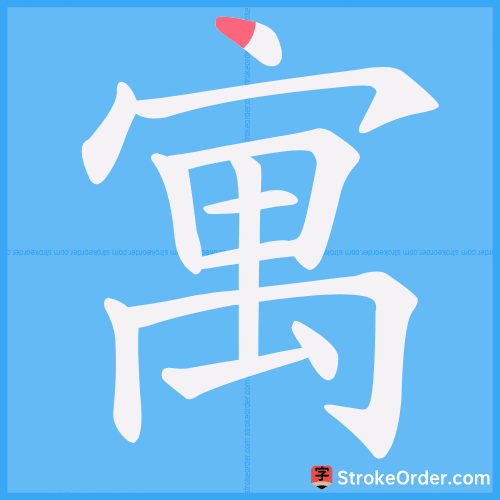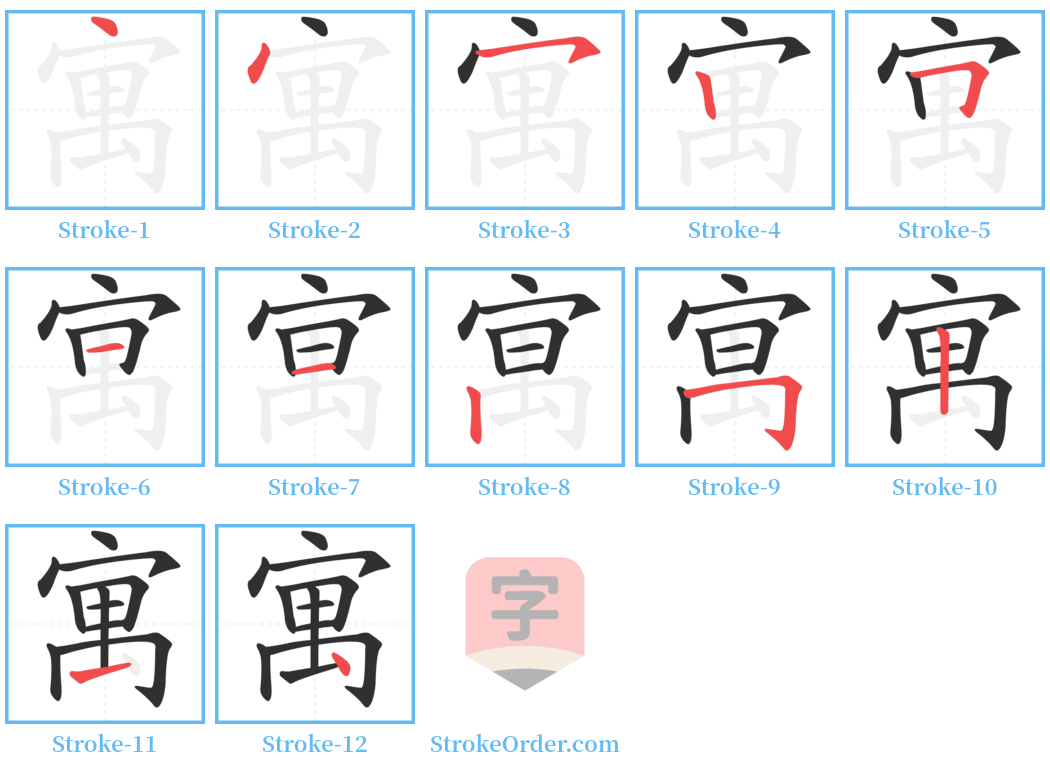寓 Stroke Order
Animated Stroke Order of 寓

Stroke Order Diagrams for 寓

Step-by-Step Handwriting Guide for 寓

Learn to Write Chinese Characters with Video Tutorials
Watch the video of writing the Chinese character "寓", learn the correct stroke order (笔顺) of the character "寓", and master the standard way of writing the character "寓".
Free Printable Handwriting Practice with Stroke Order: 寓
Printable Writing Practice Worksheet of "寓" in Portrait Orientation (Tian Zi Ge)

Printable Writing Practice Worksheet of "寓" in Landscape Orientation (Tian Zi Ge)

Information of 寓
Pinyin
yù
Radical
宀
Strokes
12 strokes
Usage
★★★★★
Definition
reside / residence
寓 [yù]
1. Originally referred to living temporarily (寄居), later generally refers to residence (居住).
- Example: 寄寓公 (in ancient times, refers to officials and nobility residing in foreign countries; later broadly refers to landowners and gentry living in reduced circumstances).
- Related terms: 寄居 (to temporarily live); 寄所 (temporary dwelling); 寄舍 (temporary lodging); 寄邸 (a place of residence).
2. Place of residence (住的地方).
- Example: 公寓 (public residence); 客寓 (guest residence).
3. To entrust or to convey (寄托).
- Example: 寄托 (to entrust); 寓目 (to review); 寓言 (a narrative that conveys a moral lesson).
- Related terms: 寓意 (meaning conveyed or implied in language).
4. To watch (观看).
5. To mail or send (寄递; 投寄).
名:
1. Residence (住所).
- Example: 家寓 (family residence).
2. Articles for funeral use (丧葬用品).
- Example: 寄镪 (funeral paper money covered with white gold water); 寄彩 (colored silk made of paper).
Definitions overview:
- The character 寓 encompasses meanings related to temporary residence, entrusting, and watching. It is also used to describe physical dwellings and items associated with funerals.
moral (of a story) / lesson to be learned / implication / message / import / metaphorical meaning
Input Method for 寓
Pinyin
yu4
Wubi
pjmy
Cangjie
jwlb
Zhengma
wdlz
Four Corner
30227
Unicode
U+5bd3
Same Pronunciation Characters